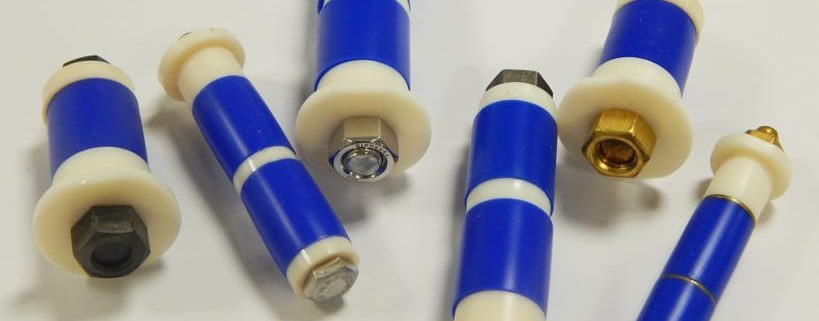The Different Types of Tube Plugs: A Comprehensive Guide
A leaking tube may seem like a minor problem, but in commercial heat exchangers and condensers, it can be a ticking time bomb. From reduced efficiency to costly repairs and safety hazards, leaks can cause significant damage and disruption.
When it comes to leaks, delaying repairs can only worsen the problem. Given the densely packed nature of tubes in boilers and heat exchangers, replacing a single tube can prove both costly and time-consuming. However, tube plugs offer a fast and cost-effective alternative to replacing the entire tube.
Besides tightly sealing leaks, high-quality tube plugs protect nearby tubes from damage and maintain the machine’s efficiency.
Tube plugs come in many types, sizes and materials. In this blog, we explore various tube plug types and their applications.
What Are the Different Tube Plug Types?
By Design
Over time, tube plug designs have been altered to meet changing market demands. However, the three most widely used types of tube plug designs are:
One-Piece Plugs
Commonly used in low-pressure vessels, tapered or one-piece tube plugs are affixed to the tube through wedging or welding. The plug creates a small contact seal that helps prevent leaks.
While this creates a secure seal, improper installation can lead to the splitting or deformation of the tube sheet. Welding the tube plug generates a significant amount of heat which may distort the tube sheet and cause adjacent tubes to leak.
Two-Piece Plugs
Thanks to the additional rings and pins, two-piece plugs can create a larger sealing area than one-piece plugs. They’re also commonly used in low-pressure vessels.
Mechanical Plugs
This plug type has serrated teeth, allowing it to get a firm grip and expand within the tube rather than being hammered in. Mechanical plugs are suitable for higher-pressure applications but can cause harm to the tube or tube sheet.
By Material
Tube plugs are manufactured from a wide range of materials. Make sure to choose one that either matches or is compatible with the tube material to prevent issues like rusting and corrosion.
The plug’s ability to create a secure mechanical seal depends on material properties like hardness and coefficient of thermal expansion. Selecting matching materials that possess identical properties can yield greater results.
Brass, Titanium and Stainless Steel
Brass, stainless steel and titanium tube plugs offer distinct advantages, such as the following:
- They do not fracture or distort the tube or tube sheet.
- They are non-corrosive, making them highly resistant to chemical reactions.
- They are easily installed and extracted.
- They are reusable and ideal for coated surfaces.
Heat Exchanger Products Corp offers stainless steel tube plugs with 316 Stainless Steel nut and bolt assemblies. The washers and collars on our plugs are produced from a non-water-soluble plastic called Hytrel®, which can withstand temperatures up to 248°F. Additionally, the silicone components are made of vulcanized silicone rubber.
Non-Metallic
Like brass and steel plugs, non-metallic plugs are easily installed, durable and suitable for coated surfaces. They’re also non-corrosive and will not damage the tube or tube sheet.
The key advantage of a non-metallic plug is the lack of potential galvanic action occurring in the tubes.
Galvanic action happens when two dissimilar metals are coupled in the presence of an electrolyte. It can lead to significant pitting and an early deterioration of the tubes, potentially causing leaks or equipment failures.
HEPCO manufactures non-metallic plugs using a high-performing 30% glass-filled polymer. This material boasts excellent stability under conditions that demand high heat levels and tensile strength.
By Application
Tube plugs are engineered to address specific problems and cater to various applications.
Heat Exchanger Tube Plugs
Our heat exchanger tube plugs feature quality silicone that can withstand temperatures up to 500°F.
These tube plugs help seal leaks in tube bundles inside heat exchangers. They’re inserted into the affected tube, effectively isolating it from the liquid or gas flow.
High-Pressure Tube Plugs
Our high-pressure tube plugs offer a reliable and lasting mechanical sealing solution for leaking tubes. This approach doesn’t require any hot work or explosives, removing the risk of circumferential cracking and other heat-related problems with welding.
Test Plugs
HEPCO test plugs are ideal for temporary tube testing applications. Our test plugs are highly flexible and can effectively seal off tubes for helium leak testing. They’re reusable, available in various sizes and easy to install and extract.
Internal Tube Plugs
Internal tube plugs can be completely fitted inside the tube and tightened. They can be removed by backing off the nut and pulling out the plug if needed. Otherwise, they can remain in place to function as a permanent seal.
Chiller Tubes
Our brass and stainless chiller tube plugs work similarly to our standard plugs and fit comfortably in a 3/4″ 16 BWG or .620 tube. We can replace the chiller tube plug’s Hytrel collar with a metal washer if operating temperatures exceed 248°F.
Tube Indicators
Tube indicators offer a color-coded plugging system, enabling technicians to identify patterns of tube failures within a heat exchanger or condenser. They help mark wall loss and tubes that require further testing, were preventively plugged or have a full-length rod inserted.
Dangers of Using the Wrong Tube Plug Type
However, choosing the wrong type of tube plug can be a recipe for disaster. Incorrect sizes or incompatible materials can cause corrosion and damage to adjacent tubes. This puts your equipment at risk of failure, resulting in production downtime and further repairs. The wrong tube plug can also compromise your equipment and team’s safety, increasing the risk of injuries or accidents.
Selecting the appropriate tube plug that best suits your needs ensures optimal machine performance, safety and longevity.
Effectively Seal Leaks With Top-Grade Tube Plugs
Leaking heat exchangers can have adverse effects, from decreased productivity to high repair expenses. If left unchecked, leaks can worsen over time and render your equipment unusable.
Using tube plugs will seal leaks effectively and unplanned costs and downtime. However, tube plugs will require careful selection. When installed correctly, the correct plugs will help extend the life of your equipment and ensure optimal performance.
At HEPCO, we produce premium-quality, non-damaging silicone condenser tube plugs suitable for various industries, including marine, petrochemical power generation and pulp and paper plants. We use highly flexible and durable silicone for our expansion material, allowing the plugs to maintain their seal.
Contact us today to learn more about our products, request a sample plug or get an online quote.


